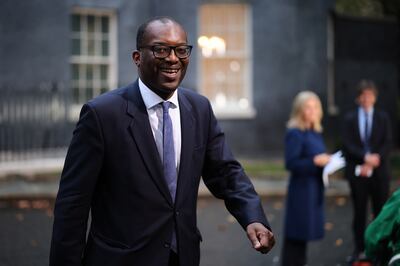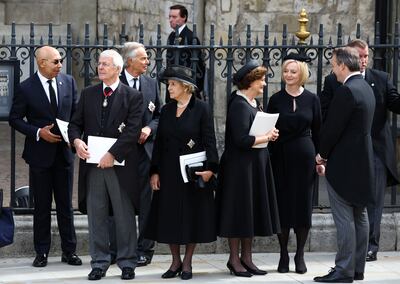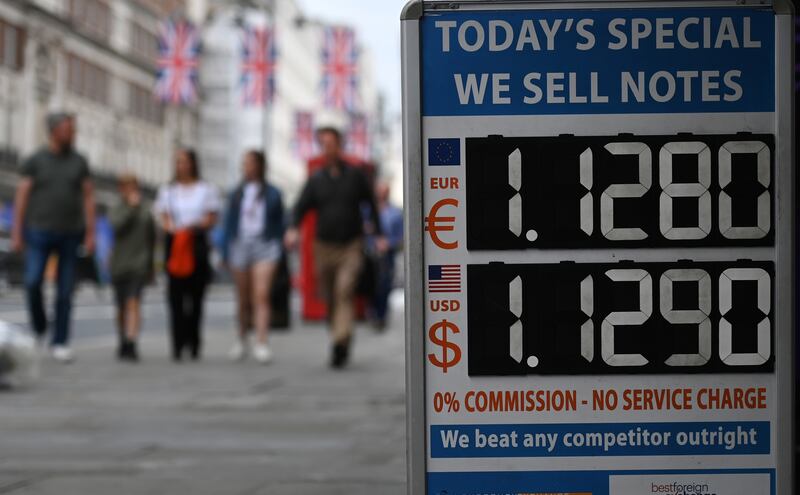One of the few bits of British domestic news to break through our national mourning following the death of Queen Elizabeth was that later this week we will have what the government calls a "fiscal event".
It sounds alarming. A "cardiac event" is what most of us would call a heart attack. I wondered if a "fiscal event" might mean something similar. Perhaps the entire British economy was about to have a life-changing seizure. Given the way things have gone in recent months – Boris Johnson’s scandals, major government changes, and all kinds of other bad news – the British people have come to expect the worst.
But the "fiscal event" turns out to be just a new label on an old habit, an emergency mini-budget on Friday. The new Chancellor of the Exchequer, Kwasi Kwarteng, will make public his plans to help people through a hard winter faced with rising bills and unrelentingly bad economic news. Annual inflation is about 10 per cent. Interest rates are up and predicted to rise further, and perhaps my initial fear that the UK is suffering some kind of economic heart attack is not far from the truth.

The pound remains at a 37-year low against the US dollar. Economists suggest we may be in a recession. The UK imports a great deal of fuel, food, cars and other goods priced in dollars or euros, so a weak pound contributes to higher prices in our shops and increased transport costs, too. Worse, many businesses are in trouble, with impossible energy bills and soaring costs of raw materials. Mr Kwarteng’s "fiscal event" needs to ensure that the UK does not face a swathe of business bankruptcies this winter.
There also emerged a stunning report in the Financial Times based on their analysis of statistical evidence about wage inequality. The study shows that many British people enjoy an excellent standard of living, as you would expect in one of the world’s richest countries, but this is very uneven. The top 3 per cent of earners take home roughly £84,000 ($95,600) a year after tax, but the lowest-earning bracket of British households "had a standard of living that was 20 per cent weaker than their counterparts in Slovenia". The poorest people in Ireland – for years a symbol of poverty – now have a standard of living considerably higher than the poorest in the UK. And Britain’s poorest inevitably will be hurt most by the economic downturn unless Mr Kwarteng’s "fiscal event" has some bold new ideas.

The guidance from UK Treasury sources is that he is considering removing the cap on bankers' bonuses. The cap meant that no bonus should be more than twice the average banker’s salary. It was imposed when the UK was still in the EU, after the 2008 financial crisis, as an attempt to stop risky practices that contributed to the crash. Mr Kwarteng apparently thinks ending the cap will revive the UK as an attractive financial centre, when in recent years we have lost out to Paris, Amsterdam, Frankfurt and elsewhere. Treasury sources suggest this will be "Big Bang 2.0", a reference to the original "Big Bang" in the 1980s when former prime minister Margaret Thatcher changed the rules and scrapped some of the bureaucracy that held the City of London back.
Unfortunately with bankers’ bonuses, Mr Kwarteng’s idea of Big Bang 2.0 is a damp squib. Britain has lost talent, trade and investment but not because of bonuses. It’s because of Brexit. Goldman Sachs made that clear when the Brexit vote meant that it moved talent and business from the UK to Germany. Brexit is also why British exports to the EU fell by 33 per cent from 2020 to 2021. Michelle Dale, a senior manager at accountancy firm UHY Hacker Young, said the reason was the difficult new bureaucracy involved in exporting to the EU and "businesses are not getting enough support from the government to navigate the post-Brexit trading minefield".
There's no doubt that if the cap on bankers’ bonuses is removed, Mr Kwarteng will argue that that’s a post-Brexit benefit, although it cannot compensate for all the Brexit losses. It’s also politically tone deaf. Imagine that you are one of millions of British low-paid workers whose standard of living is lower than that of Slovenia or Ireland. You learn that one of the first significant acts by the new Liz Truss government is to reward top bankers – people already on six-figure salaries. You, meanwhile, worry if you can afford both heating and eating this winter.
In 1834, the British Poor Law drew a distinction between the deserving poor, hardworking people who needed help, and the undeserving poor on whom charity was wasted. Rewarding bankers, hardworking or otherwise, and treating them as if they are the deserving rich is simply bizarre.
If Mr Kwarteng and Ms Truss think that’s the answer to Britain’s economic problems, they are likely to have the shortest political honeymoon in the country’s history. Their "fiscal event" really could be heart-stoppingly misjudged.






